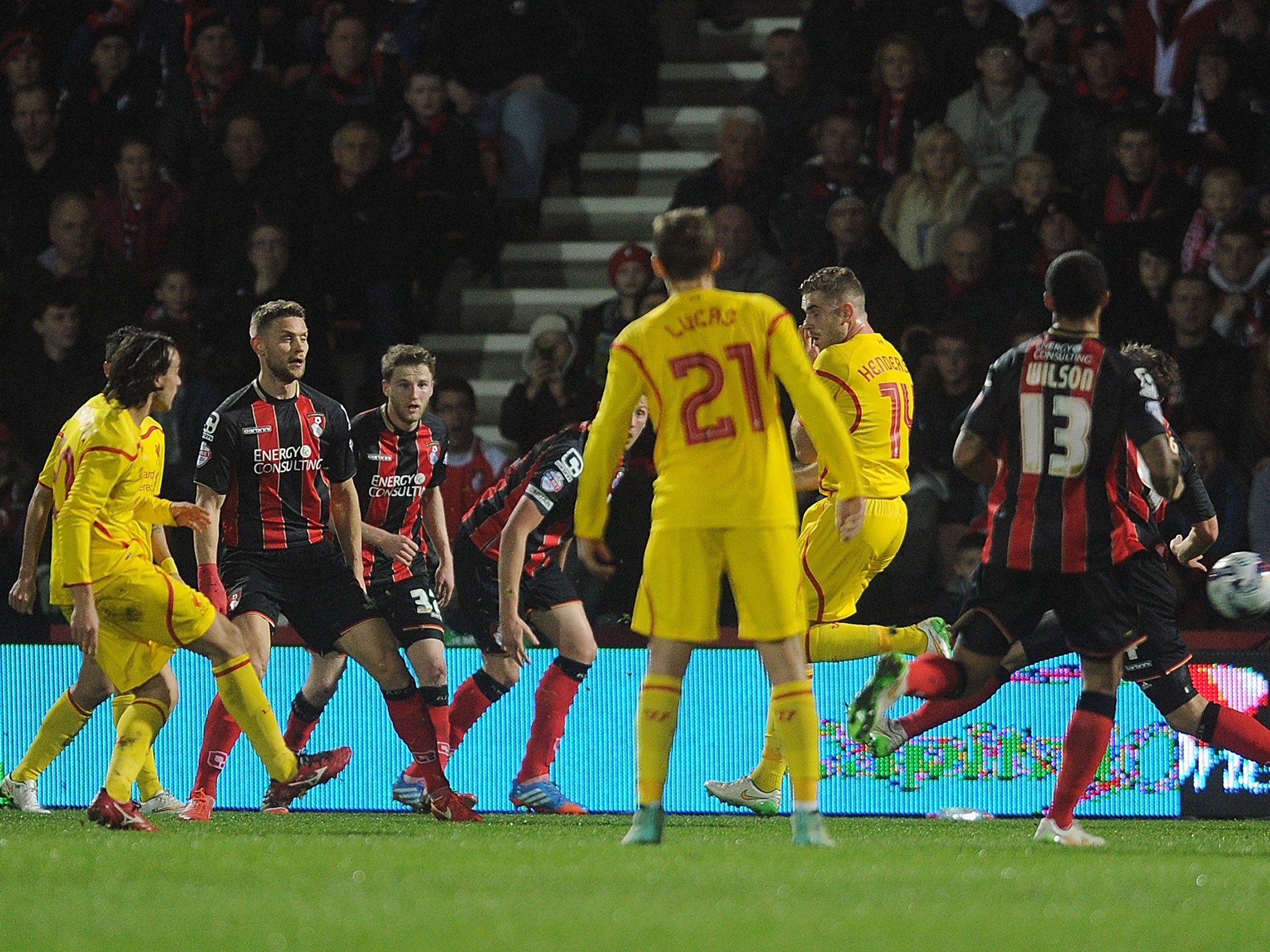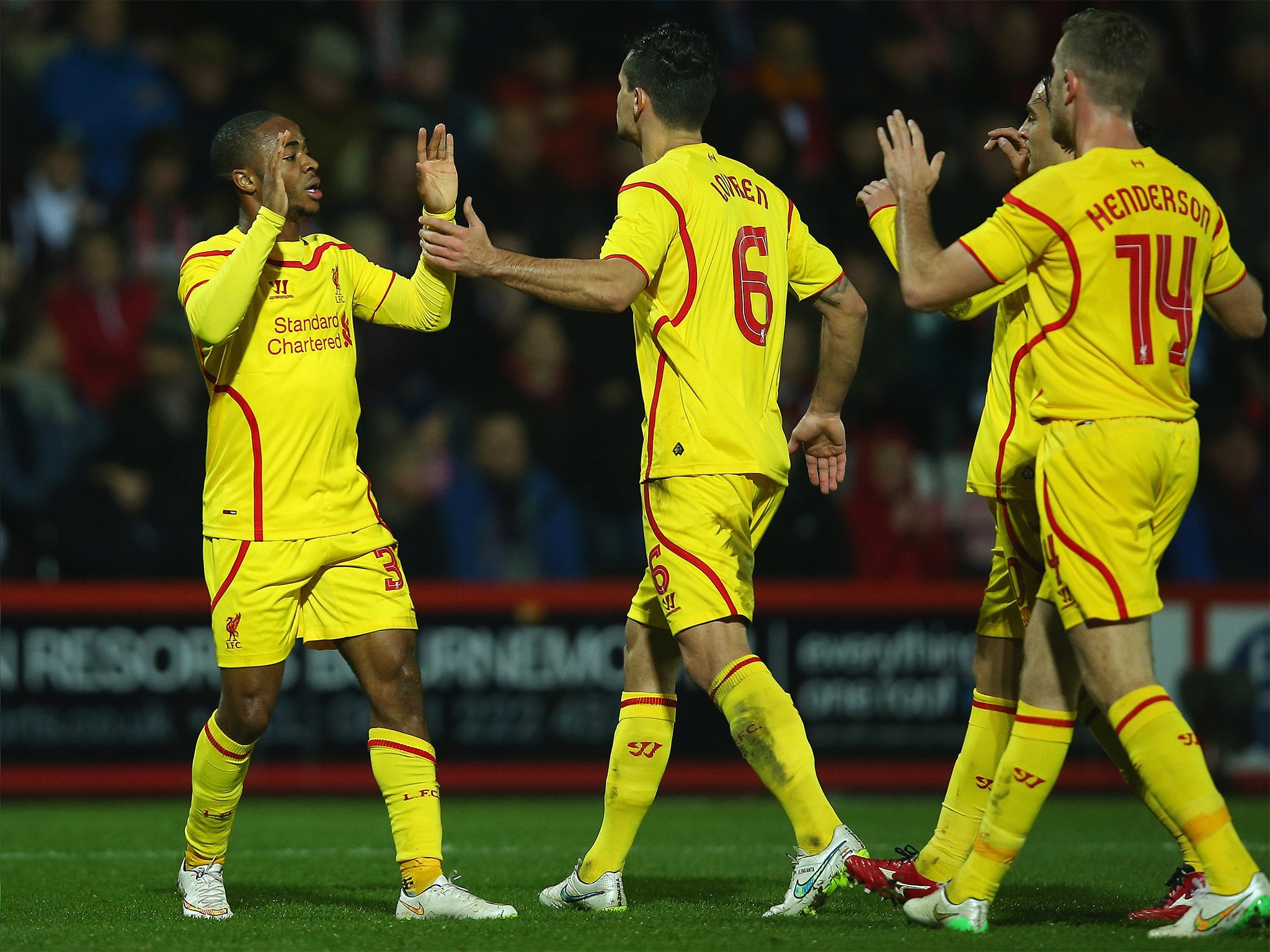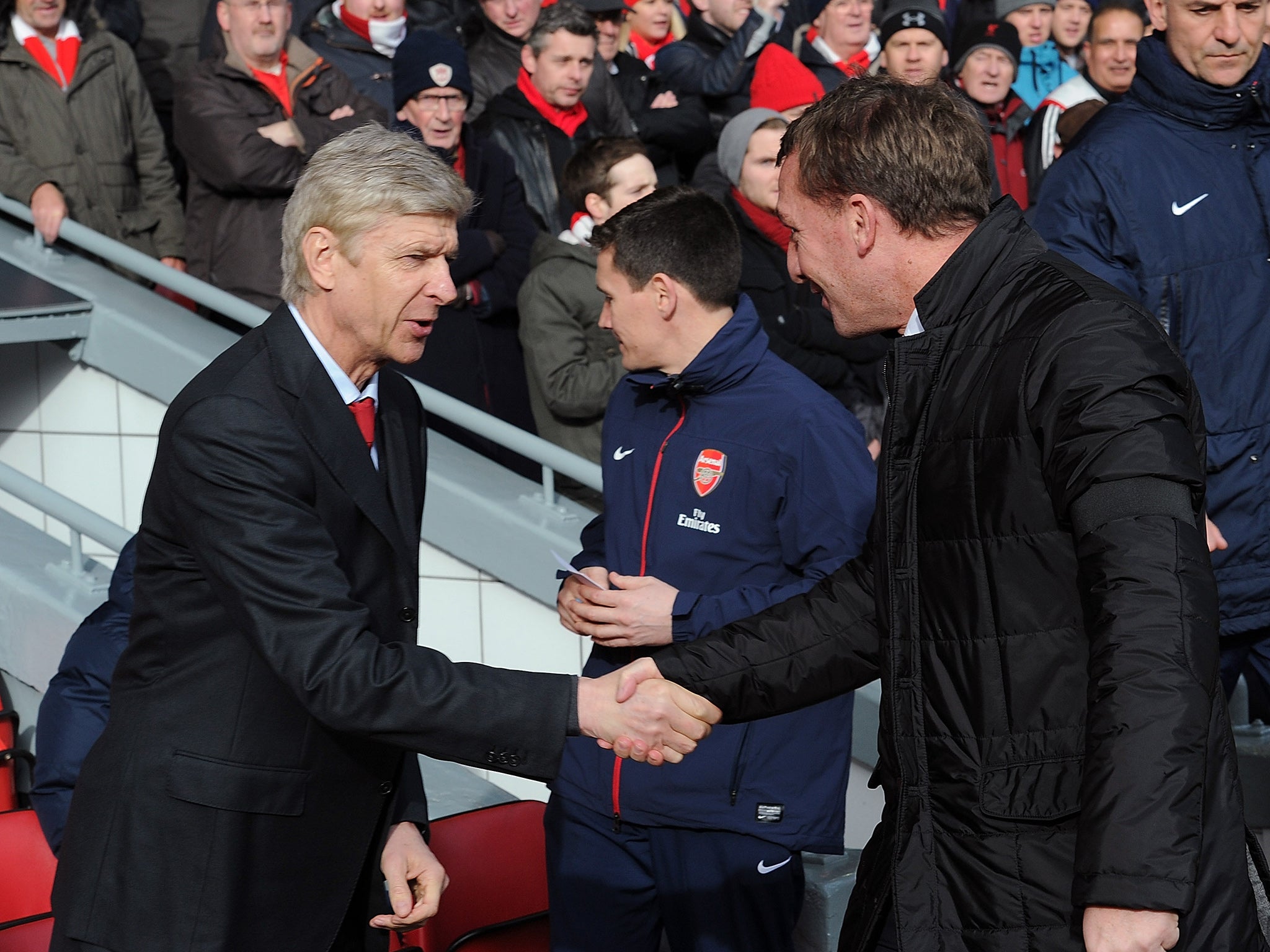Your support helps us to tell the story
From reproductive rights to climate change to Big Tech, The Independent is on the ground when the story is developing. Whether it's investigating the financials of Elon Musk's pro-Trump PAC or producing our latest documentary, 'The A Word', which shines a light on the American women fighting for reproductive rights, we know how important it is to parse out the facts from the messaging.
At such a critical moment in US history, we need reporters on the ground. Your donation allows us to keep sending journalists to speak to both sides of the story.
The Independent is trusted by Americans across the entire political spectrum. And unlike many other quality news outlets, we choose not to lock Americans out of our reporting and analysis with paywalls. We believe quality journalism should be available to everyone, paid for by those who can afford it.
Your support makes all the difference.When Arsenal last came to Anfield, they were savagely beaten, four down inside 20 minutes, enduring what Arsène Wenger called “a scar in your heart forever”.
The bruises were not confined to the Arsenal manager’s chest. As he walked through the entrance to Liverpool’s Lime Street Station for the journey back to London, he slipped and fell flat on his back, helped to his feet by two policemen. The photographs were published the next day, a further symbol of Wenger’s humiliation.
After being booed as he boarded a train at Stoke after a 3-2 defeat at the Britannia Stadium, Wenger probably does not care too much for railway stations. His counterpart this afternoon, Brendan Rodgers, does not care too much for those Arsenal fans who carried a banner to the Hawthorns demanding that the man who revolutionised their club should resign.
“He has been an iconic figure for football, he has been amazing,” said the Liverpool manager. “You get criticised when you don’t win games but some of the personal stuff he takes is disgraceful, absolutely disgraceful.
“He fell over in a train station and they were videoing it, taking pictures of him, and then people print it. What happened to him the other week at West Brom was absolutely disgraceful, as a leading figure in football, a real statesman of the game, it was really poor. But that is the modern world, unfortunately. Six or seven months ago, I was the manager of the year. I was going to be this and that and tactically I was this and that. But because we lost two world-class players [Luis Suarez and Daniel Sturridge] – one out of the club, one injured – I am useless.”
The 5-1 rout of Arsenal in February was the first of 11 straight victories that carried Liverpool to within an ace of breaking the Manchester-London cartel that has dominated the Premier League since its inception.
That was 10 months ago, but in this Instagram age, fuelled by Twitter, phone-ins and rolling 24-hour sports news, Rodgers is no longer the great white hope of British football management, he is a fraud, who got lucky for one season. The fact that he has lost two players who between them provided 55 of Liverpool’s goals is sometimes lost in the wash.
Among football fans of a certain age on Merseyside, one of the favourite topics of conversation is how Bill Shankly would have coped with the modern game. One thing seems clear: had Shankly gone six years without a trophy as he did before rallying the club to win the championship in 1973, he would have been hounded from office. It is a subject that Rodgers might raise with Jürgen Klopp at the next Uefa coaches conference. The man tipped to take over at Arsenal and Liverpool has also sustained scars to the heart as Borussia Dortmund flounder in the Bundesliga.
“If you look at Klopp’s example at Dortmund, he knows there are going to be certain players who will move on each year but the minute he takes Robert Lewandowski out of his side he loses a world-class player,” said Rodgers. “You have seen where they have been this year, how they are struggling. You take two players out of a team that had come through unexpectedly, like we did last year but which was improving and developing, that is a massive, massive loss to any group. It has taken us that bit of time to try to recover our way of working, to find that balance.”

At least Wednesday night’s victory at Bournemouth has given Rodgers a few inches of breathing space and a place in the semi-finals of the Capital One Cup. The performance of Lazar Markovic, one of the number of young, expensive and largely underperforming players brought to Anfield, was a glimmer on what has been a dark horizon.
“The other night at Bournemouth, in an attempt to find a solution, we were playing 3-4-3. A British coach playing 3-4-3? He must have fallen on to that system by luck,” he said in a voice loaded with sarcasm. “It might not have been that I was awake until the early hours of the morning thinking how we might do it?
“A foreign coach would be a tactical genius – playing Markovic wide, using Raheem Sterling as a free number nine, moving with penetration, playing with a box midfield and a back three – I must have just dreamt that and thrown it out there.”
Rodgers was angry in the same way that one of his predecessors, Gérard Houllier, used to be angered by the battery of former Liverpool players lined up by the media to dissect his teams. “I can vouch for that!” he laughed. Graeme Souness and Jamie Carragher have been especially effective critics of Rodgers’s third season at Anfield.

The chief criticism of Rodgers has been that he has ploughed the Suarez money into what Liverpool’s former captain, Alan Hansen, would call “maybe players” – young footballers who might shine but thus far have not. “Listen, this is the world we live in,” he said. “In the past, young players would come in here and be given six months or two years to develop. Modern players, because of the media and social media, they don’t get that time. They are expected to be unbelievable straight away.”
And with that, he is done, through the double doors and back to his office to prepare for training. Unlike Wenger at Lime Street, Rodgers stays on his feet.

Join our commenting forum
Join thought-provoking conversations, follow other Independent readers and see their replies
Comments